The Idea of Hegels Science of Logic
STANLEY ROSEN
The University of Chicago Press
Chicago and London
Stanley Rosen is the Borden Parker Bowne Professor and University Professor Emeritus at Boston University. He is the author of many books, most recently Platos Republic: A Study.
The University of Chicago Press, Chicago 60637
The University of Chicago Press, Ltd., London
2014 by The University of Chicago
All rights reserved. Published 2014.
Printed in the United States of America
23 22 21 20 19 18 17 16 15 14 1 2 3 4 5
ISBN-13: 978-0-226-06588-5 (cloth)
ISBN-13: 978-0-226-06591-5 (e-book)
DOI: 10.7208/chicago/9780226065915.001.0001
Library of Congress Cataloging-in-Publication Data
Rosen, Stanley, 1929
The idea of Hegels Science of logic / Stanley Rosen.
pages cm
Include bibliographical references and index.
ISBN 978-0-226-06588-5 (cloth : alk. paper) ISBN 978-0-226-06591-5 (e-book)
1. Hegel, Georg Wilhelm Friedrich, 17701831. 2. Hegel, Georg Wilhelm Friedrich, 17701831. Wissenschaft der Logik. 3. Logic. I. Title.
B2949.L8R668 2013
160dc23
2013014451
 This paper meets the requirements of ANSI/NISO Z39.48-1992 (Permanence of Paper).
This paper meets the requirements of ANSI/NISO Z39.48-1992 (Permanence of Paper).
ISBN-13: 978-0-226-06591-5 (e-book)
CONTENTS
ACKNOWLEDGMENTS
I gratefully acknowledge the invaluable contributions of my friend Dr. Paul C. Good in preparing this book for publication. Though he is not a philosopher by training, Pauls intelligence and common sense, and his assistance as a technologist, patient listener, advisor, and laborer helped make this book possible. Together we look toward future accomplishments.
Introduction
Shortly after Hegels death, the school he established dissolved into at least three main segments, known as the left, center, and right Hegelians. The comprehensiveness of this articulation exhibits two closely related points. First: not even Hegels personal students could furnish a widely acceptable and lucid account of the masters central doctrines. Second: the absence of any agreement about the content of Hegelianism encouraged a resurgence of positivist and empiricist doctrines of various kinds, loosely unified by the slogan Back to Kant. There is a deep connection between this process and the debate between the so-called analytical and phenomenological schools of the twentieth century. It would be a mistake simply to identify Hegel himself as the grandfather of phenomenology and the neo-Kantians as the ancestors of analytical philosophy. But it is certainly true that the collapse of Hegelianism was instrumental in the subsequent repudiation of systematic and, of course, speculative philosophy. The apparent failure and, indeed, absurdity of Hegelian science (Wissenschaft) was a major factor in the subsequent rise to dominance of scientific rationalism in the sense of that expression that is illustrated by the mathematical and natural sciences and their associated technology.
I will not attempt here to describe in detail the doctrinal history of the past hundred years. It is enough to say that if the picture of a quarrel between analysts and phenomenologists was ever an accurate representation of philosophical discussion, it is today largely outmoded. Something similar to, if not identical with, what happened following the dissolution of the Hegelian school is now taking place in contemporary philosophical debates. To mention just one highly relevant illustration of this, Hegel himself has come back into fashion among academic philosophers, and one sees a steadily increasing effort to reformulate Hegels plastic texts into documents of sufficient lucidity and analytical precision to be useful to the more adventuresome and imaginative members of what I have loosely characterized as the neo-Kantians.
What makes the present moment philosophically exciting is at the same time a cause of danger. Despite the continuing popularity of analytical philosophy in the academic community, the old enthusiasm and rather dogmatic conviction of intellectual rectitude has evaporated. More and more self-styled analysts are turning to the study of Hegel, Nietzsche, Husserl, and Heidegger, to mention only the most important examples. Even in the latest manifestation of vigor among analytical philosophers, namely, philosophy of mind both natural and artificial, one finds a broad spectrum of interest in phenomenological thinkers. As to the hard-headed analysts in this line of development, they seem to be closer to neurophysiology and computer science than to philosophy, and there is considerable opposition to this hyperscientific approach among analytical philosophers themselves.
In sum, there are many signs of a new willingness to explore ostensibly outmoded and even ridiculed styles of thought. I am therefore encouraged to enter into this ecumenical process with my own interpretation of Hegels Science of Logic (hereafter SL). As is well-known, Hegel figures prominently in the development of analytical philosophy in England. One of the central issues in the early stage of that development is virtually the same as the problem that underlies Hegels critique of traditional rationalism. It will thus be doubly useful to begin my exposition with an introductory statement of the problem. The problem is where one stands with respect to the question whether logical atoms exist. Are there, in other words, formal elements of such simplicity that they cannot be further reduced by analysis, and each of which is directly intelligible as itself, without reference to the others? Otherwise stated, if it is impossible to arrive at formal atoms by the process of conceptual analysis, and necessary that the analysis of any formal element make use of others, does this mean that the atoms are intrinsically interrelated in a dialectical manner, or can we distinguish between the irreducible complexity of analytical language and the ontological simplicity of such formal elements (or concepts) as being, nothing, same, other, and so on? The question can also be phrased as follows: If the analytical philosophers were correct to repudiate logical atoms, does this not force them to fall back upon a kind of Hegelian dialectical ontology? Is it possible that the apparently dominating influence of Kant among analytical thinkers is a simulacrum of the subterranean influence of Hegel? Or can we say that the explicit repudiation or derision of dialectical ontology is undercut by its implicit presence within the broader theoretical doctrines of post-Tractarian analytical philosophy? Could one not plausibly argue that modern science is itself dialectical, as for example in its recognition of the reciprocal influence of one aspect of reality upon the others? I am not, then, raising an obscure question from the history of traditional philosophy. The issue goes to the heart of the relation between language and reality. The question, rendered canonical by Kant, is whether the discursive intelligence produces the world-order by the very activity of the conceptual analysis of experience. Still more precisely, is experience itself a production of cognition? If it is not, then how does cognition grasp (and so refer to) experience? If it is, then how can we distinguish between better and worse productions other than by personal preference or the fashions of intellectual history?
Hegel, like many contemporary (or late-modern) analytical philosophers, contends that the logical structure of experience is independent of its variable content. Otherwise put, it is this structure that orders historical variability into a conceptually coherent, and so complete, understanding of human experience. This formulation already shows, of course, how Hegel differs from the analytical proponents of logic. I mean by this something much more important than the rejection of formalism by Hegel, or even the agreement by many philosophers of logic that logic is itself a historical creature. The sharpest statement of the difference is that for Hegel, logic is ontological. And this is closely connected with the thesis that ontology is dialectical, that is, that the elements or atoms of the structure of intelligibility are interrelated intrinsically and not merely in the process of cognition. Finally, it means for Hegel that history is not some random agency that lies outside our philosophical doctrines and exchanges them in an arbitrary and hence meaningless way. Instead, history is the human exhibition of the very conceptual structure that constitutes experience.
Next page

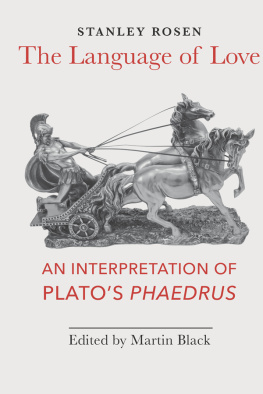
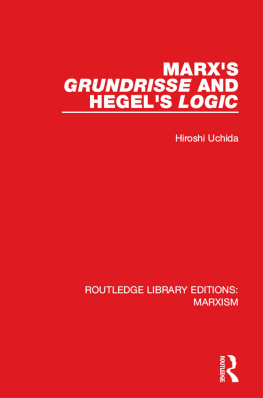
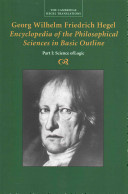
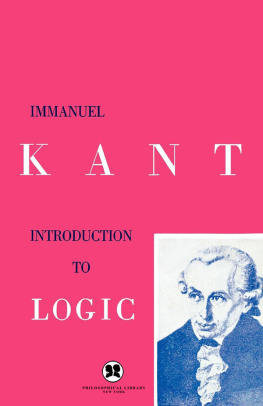
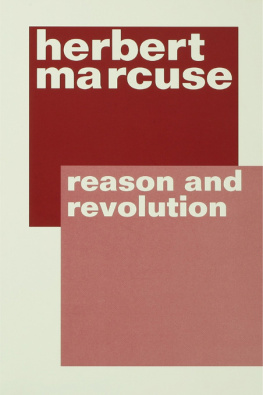
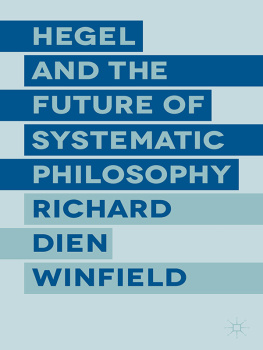
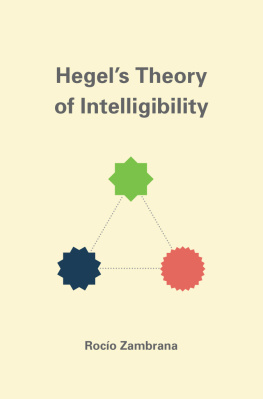

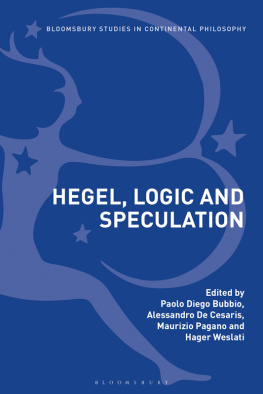
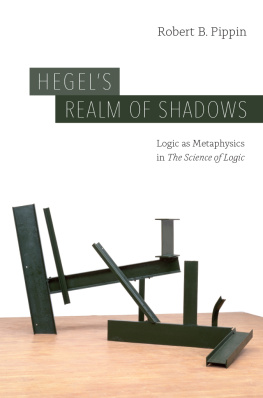
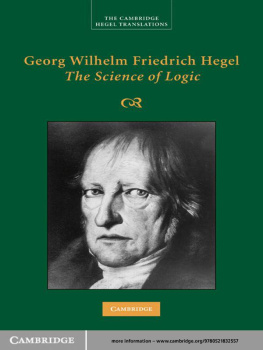
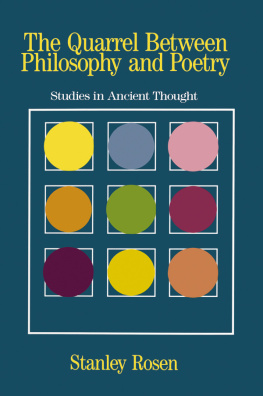
 This paper meets the requirements of ANSI/NISO Z39.48-1992 (Permanence of Paper).
This paper meets the requirements of ANSI/NISO Z39.48-1992 (Permanence of Paper).